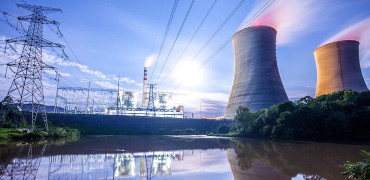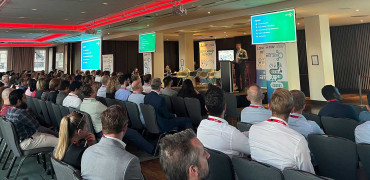I don’t know if you saw the news this week about a study from researchers in New Zealand that has measured the economic costs of extreme weather events that are linked to climate change.
The research demonstrates that these dangerous occurrences have caused damage estimated to be at least £2.3tn ($2.8tn) over the past 20 years.
Scientists from the Victoria University of Wellington in New Zealand found that, although the figures vary drastically from year to year, damage from floods, droughts, heatwaves and storms have resulted in an average cost of £115bn ($140bn) a year from 2000 to 2019. The researcher’s latest data shows costs for 2022 standing at £228bn ($280bn).
£13m per hour is what I call a real cost of living crisis
A staggering cost
The report appeared in the Guardian on Monday 9th October and was widely shared across industry news sites covering the energy and environment sectors.
This hasn’t received the news coverage it should though, not least because of the horrific and tragic events in Israel but in simple terms, it means that the climate crisis has cost us all an average of £13m per hour over the past 20 years.
Now that is what I call a real cost of ‘living’ crisis.
The university’s scientists came up with this figure by combining economic data on losses with data on how much global heating worsened extreme weather events.
They calculated that two-thirds of the damage costs was due to loss of life, while a third related to property and other assets being destroyed.
As the Guardian reported: “The headline number is $140bn a year and, first of all, that’s already a big number,” said Professor Ilan Noy of the Victoria University of Wellington. “Secondly, when you compare it to the standard quantification of the cost of climate change [using computer models], it seems those quantifications are underestimating the impact of climate change.”
We can’t afford not to be green
The reason the report jumped out at me is that we have just seen a U-turn from the government on how we get to net zero.
As others have reported on The Hub, the government has pushed back the date to ban new gas boilers from 2025, with 2035 likely to be the new target.
Despite claims that this is to help people with the ‘cost of living crisis’ most observers see this as little more than kicking the can down the road for future generations to deal with.
And now, with this research from New Zealand, is seems that the costs are just going to get higher and higher, the longer we leave it to sort things out.
Underestimating the costs
The other shocking thing about the research is that the team from Wellington believe that their figures are highly likely to be an underestimation.
This is because they couldn’t get accurate data from low-income countries on the impact of climate-related weather events. They also weren’t able to include costs such as declines in crop yields or damage from rising sea levels.
In the Guardian report, Professor Noy is quoted as saying that the death rate data from heatwaves was only available in Europe: “We have no idea how many people died from heatwaves in all of sub-Saharan Africa.”
Encouraging signs
Despite the setback on the ban for gas boilers, there were encouraging signs as the government has increased the Boiler Upgrade Scheme grants for heat pumps from £5K to £7,500.
This will encourage more households to invest in sustainable heating but it is highly unlikely to ‘turbo-boost’ heat pump installations so will not be at the speed that the country really needs.
What it does perhaps do though, is allow more time for training so that we can convert more heating engineers to heat pumps.
Another encouraging sign is how the automotive industry has reacted to the delay on the ban on petrol cars.
Despite the Government's proposed ban on the sale of new petrol and diesel cars being pushed back to 2035, most car manufacturers are pressing on with production.
They can clearly see which way things are moving.
The same seems to be true of the commercial heating sector as we are seeing more and more companies actively plan to remove gas from their buildings over the next few years.
Perhaps the heating and housebuilding sectors will also follow suit?
Here’s hoping as the climate crisis costs are only going to go up, the more we delay.
Russell Jones is content and communications manager




